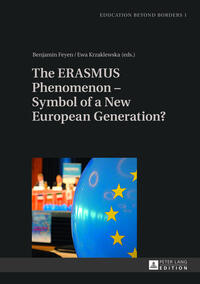
In 2012, the ERASMUS programme celebrated its 25th anniversary. As one of the best-known initiatives of the EU, it has already enabled almost three million students to spend a part of their studies abroad. But ERASMUS is more than just a simple academic exchange programme: designed to contribute to the creation of a «People’s Europe», it has become a successful political instrument for shaping generations of European students. This interdisciplinary volume attempts to explain the fascination behind ERASMUS. The authors examine the role of student mobility within the European integration process and judge its impact on how young citizens identify with Europe. Is there a «Generation ERASMUS», and what characteristics does it have? Can ERASMUS serve as a symbol for «new» Europeans?